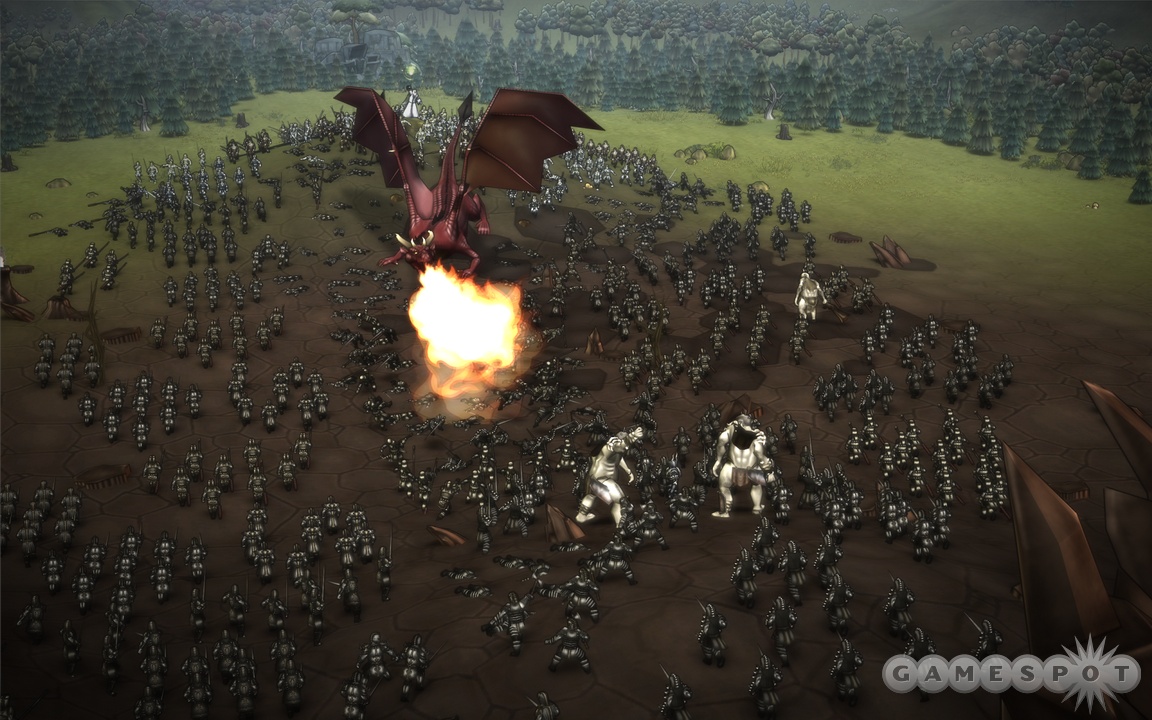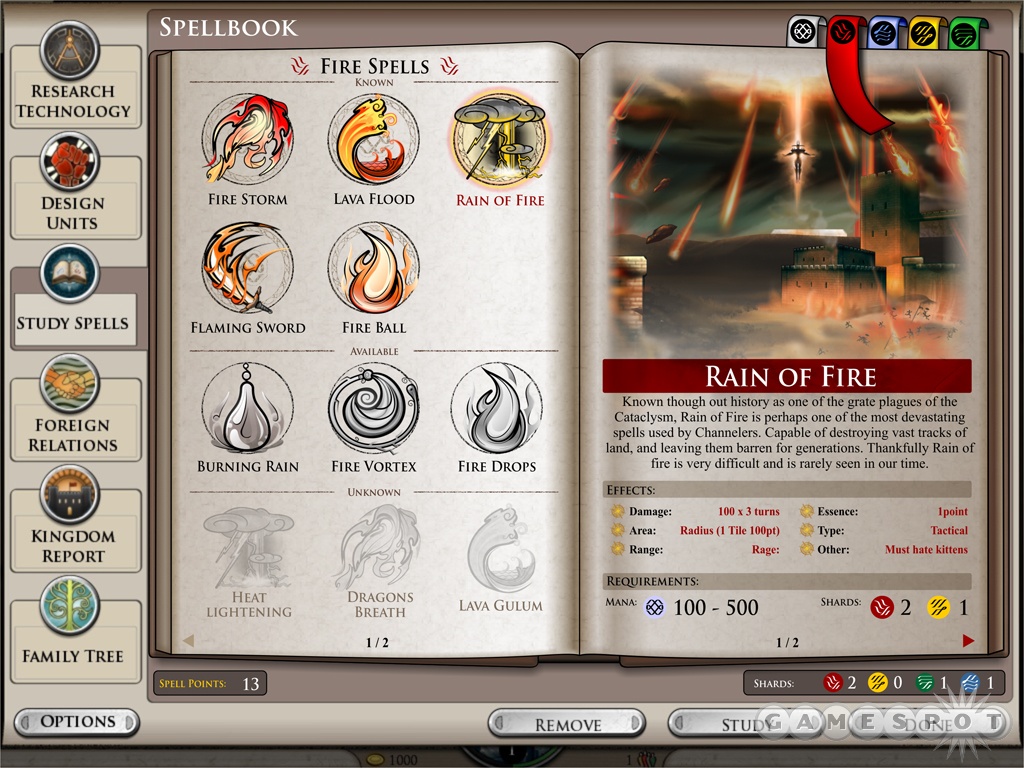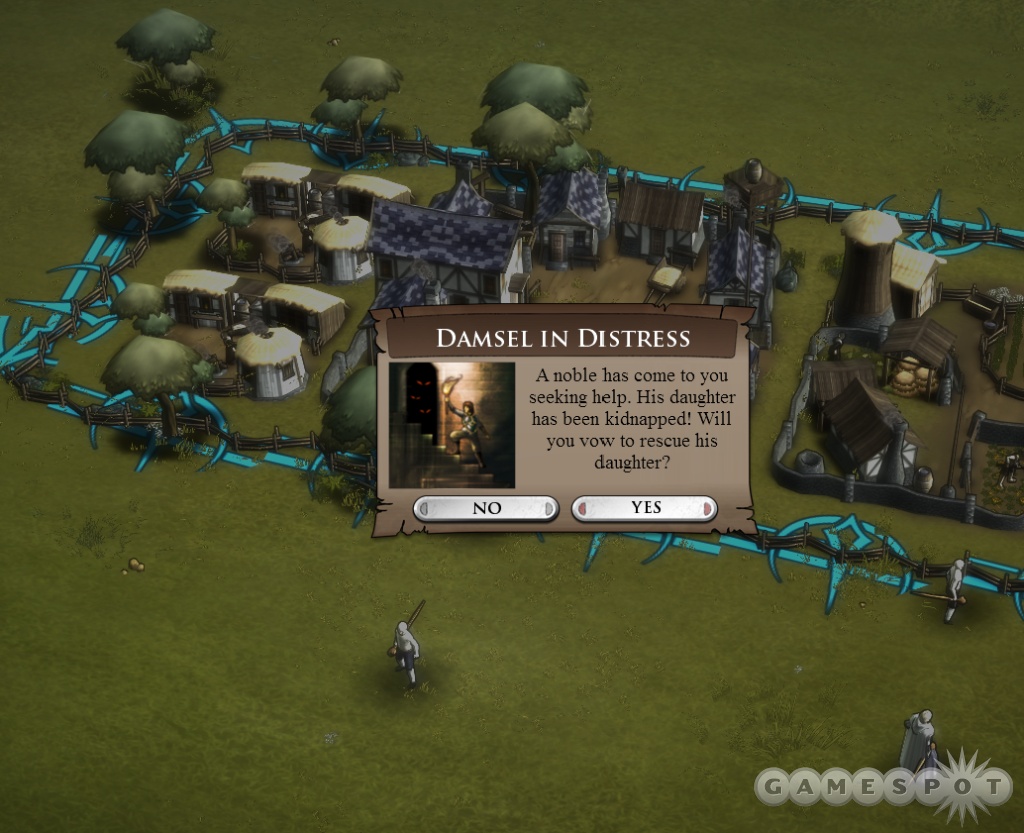Elemental: War of Magic Updated Q&A - Progress Report and Improvements Over GalCiv
Stardock frontman Brad Wardell gives us an update on this ambitious fantasy strategy game.
In the beginning, there was nothing. And for a long time, nothing happened until some guys made Master of Magic, a cult-classic strategy game that let you conquer a fantasy world with sword-swinging armies and magic spells. Master of Magic was succeeded by a great many other fantasy games that all put their own spin on the formula, but these successors eventually faded away. Now, developer Stardock is looking to recapture the magic of large-scale fantasy-themed strategy with Elemental: War of Magic, a game that builds on the success that the studio attained with its acclaimed Galactic Civilizations series. Stardock's Brad Wardell explains.

GameSpot: Give us a brief update on the game's status. What parts of the game are currently being worked on?
Brad Wardell: We're nearing the end of the first beta of the game. Our focus has been to work through the game mechanics to make sure what seems fun on paper will translate to fun in-game. Specifically, we have been working on the battle system, quests, and the player's dynasty. The dynasty system has proven to be far more interesting than we had realized. In Elemental, the player exists in the game as a specific unit (the sovereign). The sovereign can have children who appear in the game as champions with various powers. These units can be married off to other kingdoms to secure alliances and gain other political advantage. In turn, they can have children. We have a genetic algorithm for producing the children, which has had some interesting visual results. In one game, I married my beautiful daughter to a trog monster. I will require many months of therapy to recover after seeing their child.
GS: Even though Elemental is a brand-new intellectual property, it's coming from the same team that created Galactic Civilizations and that has worked on strategy games for years. What are some of the most important lessons the team is taking from its previous gameplay, design, and balancing experiences and applying to Elemental?
BW: There's a lot of lessons we've learned from Galactic Civilizations that we're bringing into Elemental. Probably the single biggest lesson has been the importance of giving the game a "soul." Each of the 12 factions needs to feel different. The gameworld should feel rich and full of epic history. We are focusing on making sure that while it is a strategy game with great depth, it also makes players feel like they're part of an epic tale that is different each time they play.
GS: We've also seen that Elemental has an extremely far zoom mode that incorporates the early beta "cloth map" view--definitely not a feature we've seen in the studio's previous games. What are some of the most important technological lessons and tech tricks the team has learned and perfected to bring into Elemental?
BW: In Galactic Civilizations II, players could zoom out to see the whole galaxy. In Elemental, we've taken strategic zoom to the next level where the game can truly be played completely in the cloth-map view. This is important to us because it lets us have our cake and eat it too--the game can be played on a netbook but also will have stunning, state-of-the-art graphics on the latest hardware.

GS: One of the most impressive and enjoyable aspects of Stardock's established GalCiv series is its smart and challenging artificial intelligence for computer-controlled opponents. How will Elemental's AI opponents compare? In what specific ways will they be even better than those of GalCiv II?
BW: Probably the biggest difference in our strategy on computer AI is that we're going to expose our AI algorithms to players via Python. In Galactic Civilizations, I wrote the AI myself, and as good as it was, there was always the limitation of "it could only be as good as I was." In Elemental, I'm writing the computer AI again, but this time, when it's done, players will be able to modify it as well.
GS: More recently, Stardock has encountered challenges in netcode for more multiplayer-heavy games. What lessons has the team taken from its recent experiences to apply to Elemental's multiplayer?
BW: The big difference is that for Elemental, Stardock is writing the netcode. In Demigod, we were the publisher and licensed a third-party network library to help developer Gas Powered Games handle its peer-to-peer system. While we were able to throw our own developers at the problem to resolve the issues for Demigod, it's not something we want to ever go through again. So on Elemental, [the netcode is] 100 percent our own. Moreover, Elemental is client/server based rather than peer-to-peer. So all the computing takes place on a server rather than on individual machines. This means one player can't really affect the game experience of everyone else.
Obviously, Elemental is focusing on its single-player experience. But much of our network investment is focusing on enhancing that single-player experience by letting users share and incorporate [user-created content] within the game. For multiplayer, the client/server setup lets us optionally manage players' saved multiplayer games so that they can go back and continue later on without worrying where their saved game is.
GS: Can you give us an update on the powerful editing tools we've previously discussed? What are some of the new developments that have been added? How big will players be able to make their maps? How many interconnected quests and triggers can be tied together? Just how long of an epic campaign do you think ambitious hobbyists will end up making?
BW: During our last visit, we had the integrated map editor, item editor, and city designer for players to enhance the game experience. Since then, we've been developing a conversation editor that can be used in-game for players to enrich the interaction between characters in the game and help users expand the in-game story as they see fit. We are also hoping to fit in a quest editor so that players can create new quests.
GS: Finally, is there anything else you'd like to add about Elemental: War of Magic?

BW: Probably one of the most fun parts of developing the game has been the open beta program. Even though the game isn't scheduled for release until the end of summer, we've had an ongoing beta for several months in which we've had enough time to play the game and find things we did, and didn't, like about our initial designs. For instance, we redesigned the technology tree to be a lot more fun, and our economic system has been refined heavily based on player feedback. It's just one of those things where the game will have had lots of real-world strategy game players playing the game long before it's generally available. It's been a lot of fun so far.
GS: Thanks, Brad.
Got a news tip or want to contact us directly? Email news@gamespot.com
Join the conversation